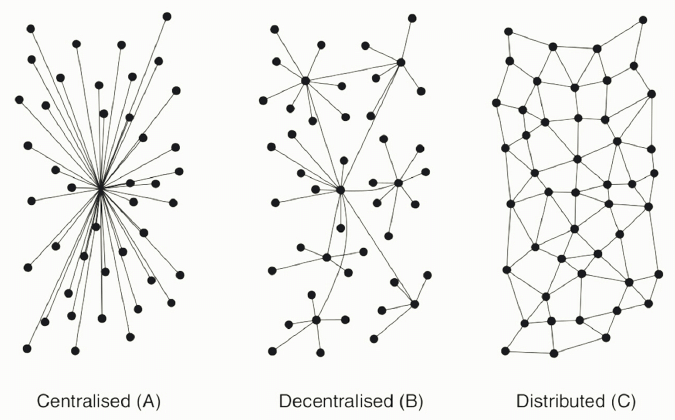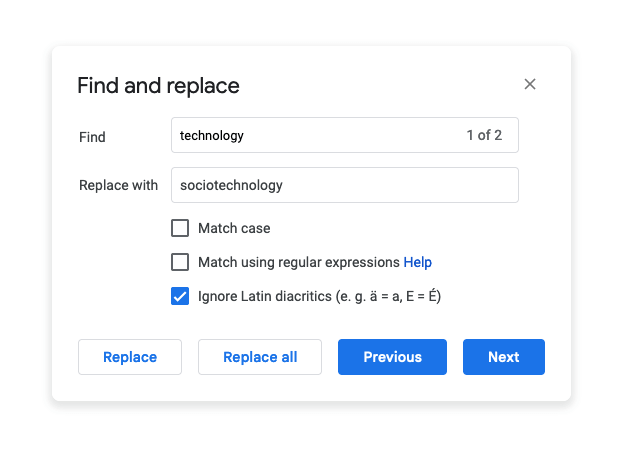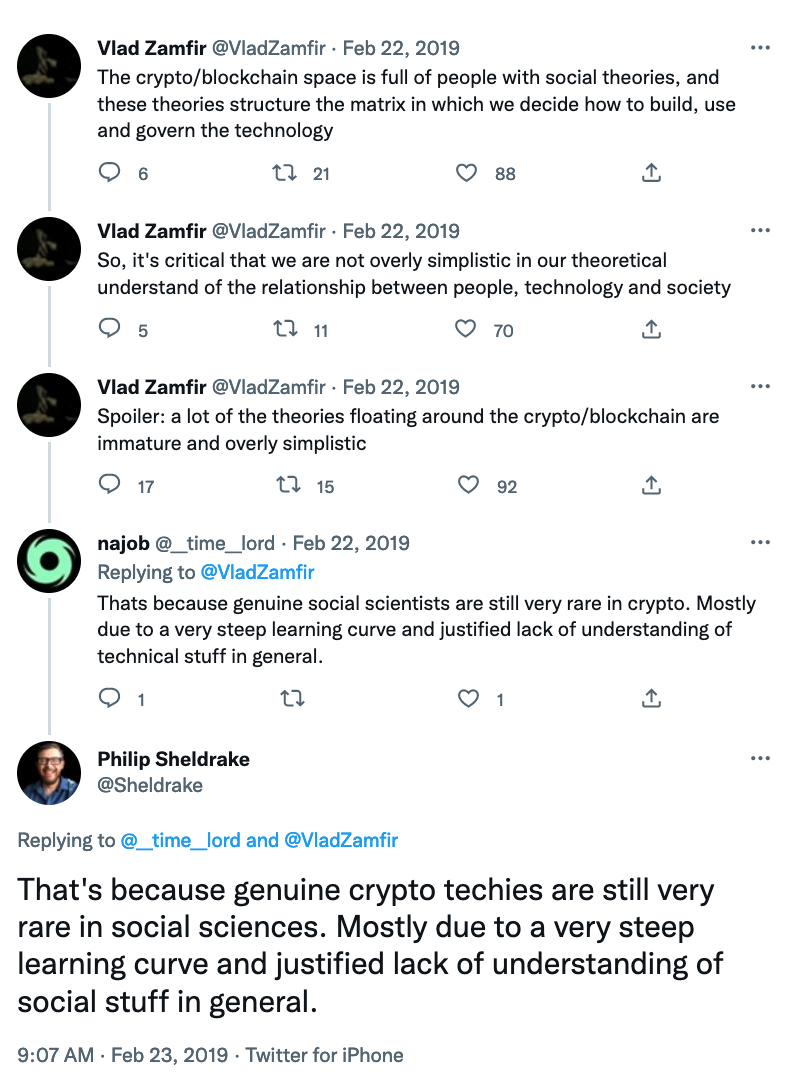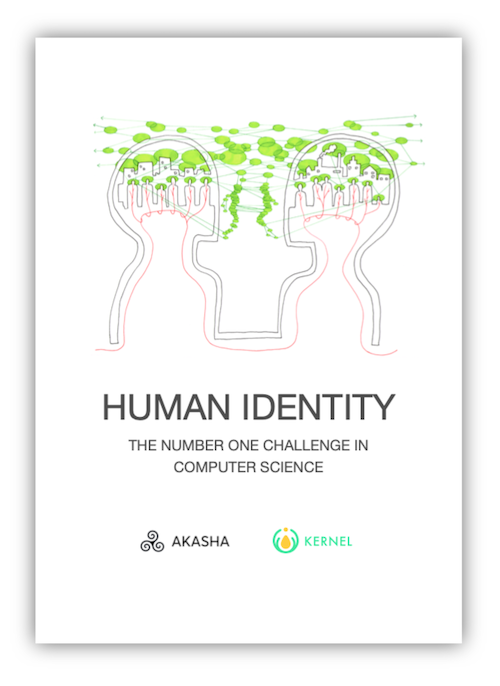Reusable KYC: when a dedication to decentralization self-sabotages
Are we our own worst enemy?

The point of failure is precisely where Web3 technology meets you and me. We must change our approach, not just to avoid failure, but to fully explore and expand the gifts of being human.

There are varied definitions of Web3. If I'm going to talk about its future #fail, I'd better offer up my working definition.
Web3 is a subset of the decentralized web (dweb) describing the relatively recent application of novel cryptographic techniques to the challenges of distributed computing. Distributed ledger technology is a subset of Web3, of which blockchain is one form. For me, information-centric networking (e.g. IPFS, Hypercore, Maidsafe, and Swarm) and so-called self-sovereign identity (SSI) also come under the Web3 banner.
A distributed system is a collection of independent entities that cooperate to solve a problem that cannot be individually solved. Distributed systems have been in existence for millions of years. From a school of fish and a flock of birds to entire ecosystems of microorganisms, there is communication among intelligent agents in nature. Distributed computing is a distributed system typified by a collection of computing resources that share neither a common physical clock nor memory, and are usually separated geographically with autonomy and heterogeneity.

A system is decentralized when it doesn’t have central components through which information flows, thereby avoiding concentrations of control and power. E.F. Schumacher considered decentralization allied with freedom and one of “the truths revealed by nature’s living processes.” (Small is Beautiful, 1973)
Influenced by Paul Baran's seminal paper (On Distributed Communications Networks, 1962), the idea of a distributed network may be taken to represent extreme decentralization. His diagrammatic representation is referenced widely, so let's not be the exception here ...

However, Valdis Krebs conveyed to me in conversation that he's never mapped a social network that looks anything remotely like Baran's archetypal distributed topology. Post-Baran then, distributed has achieved currency in describing techniques for coordinating digital computation, whereas decentralization is the clarion call one hears whenever contemplating human systems with the desire to avoid those concentrations of power (see Schneider 2019). For example, we talk in terms of decentralized organising (DAO) and distributed ledgers.
Regardless, human systems are inevitably in the mix.
Distributed systems are the result of complex, innovative processes in which technological components cannot be separated from social ones. While centralized systems can be developed without considering the social fabric in which they will be implemented, this is impossible when the technological solution in question is a distributed one. In fact, the more a system is scattered and networked, the larger and more connected is its interface with society and the more the social side of innovation has to be considered. ... we can say that no distributed system can be implemented ... without social innovation. ... Being localized, small, connected and open, these promising social innovations actively contribute to the realization of resilient, distributed socio-technical systems. (Manzini & M’Rithaa 2017)
Technology that isn't centralized requires the participation of many people to do at least several of: learn about it, pay for it, instantiate it, learn to use it, configure it, maintain it, govern it, explain it, develop it, audit it, fork it, improve it, and merge it. One uses the technology and is used by it in a deeper, more involved sense than for centrally-managed software. In other words, whenever technology isn't centralized it's not just plain old technology but fully-fledged sociotechnology, i.e. necessarily involving the application of insights from the social sciences to design policies and programs (see Bunge 1999). All the more so of course when the immediate design goals are definitionally social, e.g. social networking, identity, reputation, conversation, organising.
For the avoidance of any confusion then, I don't write sociotechnology simply to refer to technology used by people. The socio prefix relates to the diligent design process, i.e. calling on social science expertise. Such expertise has helped some companies create addictive products and services, but my framing here relates to healthy, ethical, and generative outcomes.
If you are drawn to the dweb, if you are keen to help it progress, then you will improve the odds if you do a find-and-replace wherever you have editing rights. Adding socio prompts us to think differently and so act differently.

Social scientists study people, our relationships, our sense- and meaning-making, our communing, our cooperation and our conflicts. They may take human flourishing as a worthwhile object of study for example, exploring it in terms of a broad range of states and outcomes, "certainly including mental and physical health, but also encompassing happiness and life satisfaction, meaning and purpose, character and virtue, and close social relationships." (VanderWeele 2017)
Other concepts of primary interest include agency, freedom, power, behaviour, identity, reputation, culture, democracy, rights, justice, and jurisprudence, many of which pepper the slidestacks and homepages of Web3 projects.
Whereas information technologists may label you a mere user and perhaps treat you as nothing more than a used-by, sociotechnologists ground their work in an appreciation for such vital human processes as sentience, conversation, cognition, identity, social norms, social interaction, and structuration. That last one is the name for the enduring accretion of patterns of social arrangements which are in turn a medium of the practices they organise. Popular software protocols and code are structure.
What word might imbue greater dignity than user? Calling a human human is undoubtedly more respectful then reducing them to a mere user (or worse, consumer), but there's no denying that it can sound a bit ridiculous simply swapping in human where one might traditionally use user. I've developed a habit of substituting in Alice instead.
And Alice is changing.
She is never static, by the very qualities of being alive, but there's also an unprecedented reshaping underway; a rearrangement.
Alice can no longer be described or understood solely in terms of the biological, psychological, and social. Today, she is an assemblage including information technology. Her sensing, her sense-making, and her actuation are digitally enabled. She is cyborg. I don't mean that in the Hollywood sense of having a robotic limb or two, or perhaps x-ray vision, but rather that a good part of the information flows and processing on which she relies in sensing, making sense of, and acting in the world are digitally mediated. These are essential living processes (Capra & Luisi 2014).
This may be too much of a stretch for some readers, in which case I invite you to carry on reading on the basis that Alice is simply inseparable from her digital interfaces. 'The digital' is deeply interwoven into many aspects of her life, of the life of her communities.
Either way, as noted above ("there is communication among intelligent agents"), it's critical to any good purpose you may describe in the contexts of Web3 to ensure that everyone in your team appreciates that Alice / the cyborg Alice is the intelligent agent of interest here, not the technology per se.
And so here we are.
Web3 meet Alice.
Alice meet Web3.
We have then a new 'quality' of Alice. How might we 'look at' Web3 through, in, and as Alice?
If we want to learn a bit more about her living and being and becoming in various groups, communities, and societies, if we want to see how we might help her, if we want to ensure we don't harm her, then it should be obvious that a social scientist is more immediately useful than a computer scientist. That's not to say that computer science isn't relevant; we wouldn't be having this wonderful conversation without it! Nevertheless, in light of our duty of care to Alice (i.e. to ourselves, to our loved ones), computer science must come to social science so to speak, must learn from social science, must work into social science.
This is not an original observation, far from it, but one might perhaps claim that it's common sense to the point that it's largely glossed over. Of the Web3-related job vacancies you've seen, what is the ratio of techie roles .v. social science roles?
Here's a short Twitter thread on the topic started by Vlad Zamfir, a researcher at the Ethereum Foundation.

So we have a bit of a problem.
While undoubtedly an over-simplification, it's not wholly inaccurate to characterise computer science as predominantly Newtonian and bureaucratic in nature, drawn to arborescent structures, assembled from elementary entities, and predicated on rendering entities legible to the system (aka making them universally addressable). Alice is considered an addressable thing. The system might strive to correlate identifiers representing Alice in the system until her 'singular thinginess' is represented singularly. (Indeed, give Alice something of very small but immediate value and it seems she will happily self-triangulate and self-correlate in her innocent ignorance of the poor systemic consequences.)
By contrast, social science is immersed in complexity, in community, and observant of heterarchical and rhizomatic structures. There is no elementary set of entities by which to ground everything else. When it comes to 'addressability', social scientists adopt a more localised, more contextualised, more subjective, more dynamic, and more cognitive view of the world. Relationships and individuals are of equal importance because to consider one is necessarily to consider the other. Human identity may be described more in terms of a capacity for and continuous process of sense-making rather than, say, anything to do with a national identity card. Identity processes are regarded as nothing less than a defining essence of the human condition and of our comparatively successful evolution as a species.
All in all, it's far more challenging than rocket science, as Elon Musk is finding out.
(Just to note, social scientists also study the social contexts and consequences of all variety of identity systems, but in the context of how these systems impact people's lives. To my knowledge, the existence of such digital systems has not prompted a revision of their conceptualizations of human identity.)

For more on the essentially human question of identity in the context of Web3, I can point you to my essay co-published by the AKASHA Foundation and the Kernel community earlier this year, Human identity: the number one challenge in computer science.
So we've arrived at the conditions for Web3's future #fail:
The question then arises:
Can Web3 deliver the social advantages promised by its evangelists when these longed-for benefits pivot on demanding Alice and her community adopt systematizations of computer science's conceptualization of identity rather than of social science's?
Or to put it another way, in the context of a blog post I wrote earlier this year:
When social graph connection trumps human connection, where exactly does that leave Alice, and where does that leave community?
Not in a good place by my analysis (see my essay 👆🏼).
Unless there is a flaw in my essay's rationale that I've not seen, and the dozen reviewers didn't see, and readers haven't seen (including a good handful of academics steeped in this stuff), then for as long as we continue to code for computer science's conceptualization of identity and not social science's, ALL of the work carried out under the banner of Web3 (and the dweb more broadly) will not be for nothing. No, not for nothing. It's worse than that. At scale, it will produce outcomes opposite to those intended.
That's ALL the work because all the work is sociotechnology, no decentralized tech stands in isolation, and we will have failed in the socio contexts. Specifically, instead of being sensible and meaningful (i.e. taking full advantage of our deep and beautiful capacities for perception and for making sense, making meaning), the interface between 'the digital' and the sentience and mind of the human species is collapsed down to the mindless, contextless, individuating and regimenting programmatic structure of the digital side of the equation.
We can avoid this.
Not with a solution, as Nora Bateson (2016) points out ...
The promise of increased knowledge is that it might help us to solve the problems we face. But the problem with problem-solving is the idea that a solution is an endpoint. There are no endpoints in complex systems, only tendrils that diffuse and reorganize situations ...
... but with a never-ending process.
Here's what I (think I) know:
Cybernetics is a way of thinking that bridges perception, cognition and living-in-the-stream-of-experience (the involvement of the observer), which gives important value to interaction and what we hold between ourselves and others – whether animate or inanimate. ... It comes from a mechanical metaphor for the animate, which is now partnered by an animate metaphor for the mechanical. ... [F]or me its interest lies in the significance given to the involved observer and the consequent individuality of and responsibility for his/her actions. (Ranulph Glanville 2007)
As if the dystopia avoided (hopefully) and the psychological, sociological and ecological benefits accrued were not enough, adopting such an approach could be the gift that keeps on giving beyond the immediate design challenge of human identity (see Dubberly and Pangaro 2015).
Now, we just need to figure out how to fund this work, these public goods, as a matter of urgency.
With thanks to Ray Schmitz for his comments on a first draft.